Dirk De Ridder
Chronic pain detection from resting-state raw EEG signals using improved feature selection
Jun 27, 2023Abstract:We present an automatic approach that works on resting-state raw EEG data for chronic pain detection. A new feature selection algorithm - modified Sequential Floating Forward Selection (mSFFS) - is proposed. The improved feature selection scheme is rather compact but displays better class separability as indicated by the Bhattacharyya distance measures and better visualization results. It also outperforms selections generated by other benchmark methods, boosting the test accuracy to 97.5% and yielding a test accuracy of 81.4% on an external dataset that contains different types of chronic pain
Variational Autoencoder Learns Better Feature Representations for EEG-based Obesity Classification
Feb 01, 2023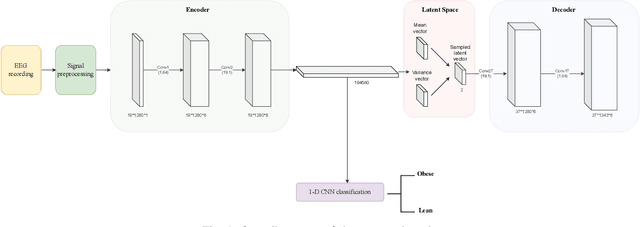
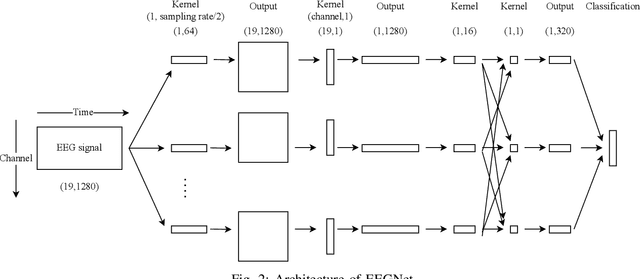


Abstract:Obesity is a common issue in modern societies today that can lead to various diseases and significantly reduced quality of life. Currently, research has been conducted to investigate resting state EEG (electroencephalogram) signals with an aim to identify possible neurological characteristics associated with obesity. In this study, we propose a deep learning-based framework to extract the resting state EEG features for obese and lean subject classification. Specifically, a novel variational autoencoder framework is employed to extract subject-invariant features from the raw EEG signals, which are then classified by a 1-D convolutional neural network. Comparing with conventional machine learning and deep learning methods, we demonstrate the superiority of using VAE for feature extraction, as reflected by the significantly improved classification accuracies, better visualizations and reduced impurity measures in the feature representations. Future work can be directed to gaining an in-depth understanding regarding the spatial patterns that have been learned by the proposed model from a neurological view, as well as improving the interpretability of the proposed model by allowing it to uncover any temporal-related information.
Finding neural signatures for obesity using source-localized EEG features
Aug 30, 2022
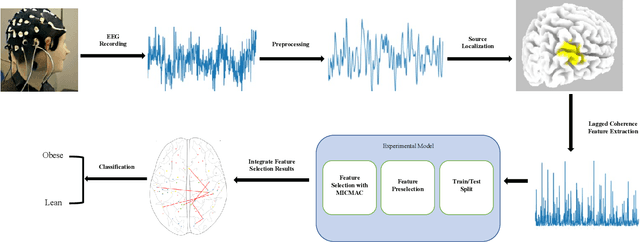
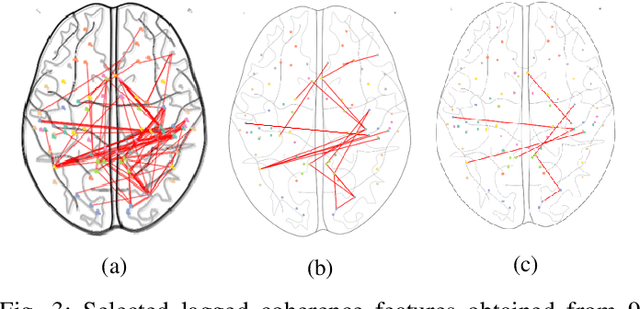
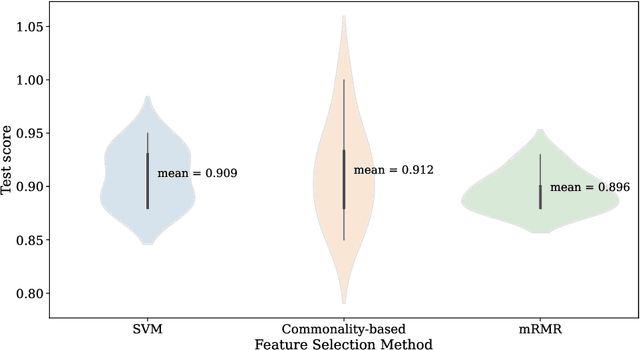
Abstract:Obesity is a serious issue in the modern society since it associates to a significantly reduced quality of life. Current research conducted to explore the obesity-related neurological evidences using electroencephalography (EEG) data are limited to traditional approaches. In this study, we developed a novel machine learning model to identify brain networks of obese females using alpha band functional connectivity features derived from EEG data. An overall classification accuracy of 90% is achieved. Our finding suggests that the obese brain is characterized by a dysfunctional network in which the areas that are responsible for processing self-referential information such as energy requirement are impaired.
 Add to Chrome
Add to Chrome Add to Firefox
Add to Firefox Add to Edge
Add to Edge